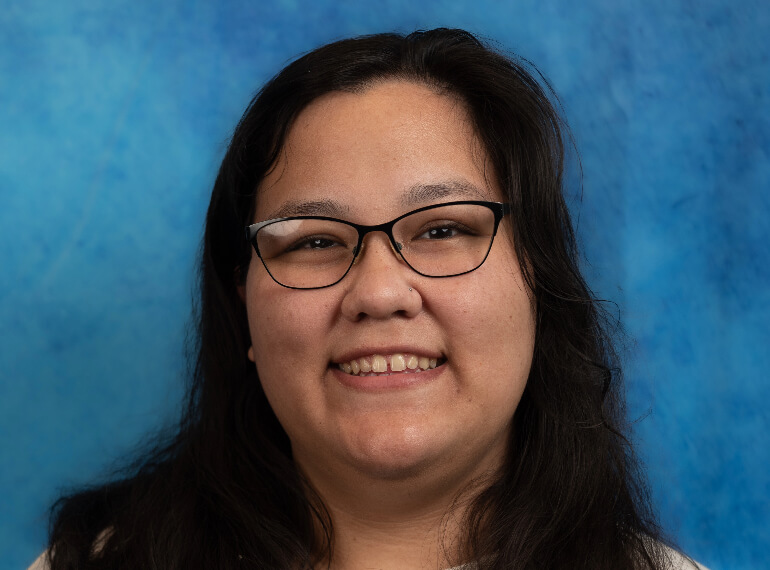Kali's Story

Medically complex
Kali Mullenax, a 22-year-old resident of Fort Worth, is the youngest of five siblings. Born with arteriovenous malformation (AVM) - abnormal, snarled tangles of blood vessels that cause multiple irregular connections between arteries and veins - Kali's condition went undetected for 20 years when she started experiencing seizures. The subsequent diagnosis led her on a challenging path of surgeries, resulting in physical and cognitive impairments.
Following her surgeries, Kali faced various challenges, including the loss of mobility in her dominant arm and foot drop, requiring a walking brace. Cognitive difficulties, such as reduced attention span, further compounded her rehabilitation journey.
When it came time for rehabilitation, Kali chose Baylor Scott & White Institute for Rehabilitation (BSWIR) – Fort Worth based on her positive experience with Day Neuro in Dallas. Proximity and the hospital's specialized focus on neurological rehabilitation played a significant role in her decision.
Upon admission, Kali set her sights on specific goals: regaining strength in her leg to walk independently and improving her attention span. With the dedicated support of her rehabilitation team, Kali steadily made progress toward these milestones. Throughout her rehabilitation, Kali discovered therapeutic activities that not only aided her recovery but also brought her joy.
Quadruped exercises helped her regain upper arm strength, while interaction with the facility dog, Grayson, provided opportunities to work on hand and arm movements. In speech therapy, outings to local grocery stores and restaurants boosted her confidence and independence.
Kali couldn’t wait to once again relish the comforts of home, enjoying “sleeping in” and spending time with her beloved dog, Jake.
Kali vividly recalls the "ah-ha!" moment when she felt her muscles activate, improving her walking ability—a turning point in her recovery journey. Her family played an integral role, providing support and participating in education and training programs. Their encouragement and reminders kept Kali focused and motivated. She began walking independently and engaged in conversations with her family, free from distractions.
Reflecting on her overall rehabilitation experience, Kali describes therapy as the highlight of her recovery journey. She credits the dedicated therapists at BSWIR – Fort Worth for their dedicated support, expertise and guidance. Should she require further surgeries in the future, Kali remains hopeful that she will return to the hospital that played such a pivotal role in her rehabilitation.
This challenging process has taught Kali valuable life lessons. Her advice to fellow patients and their families in a similar situation is to strike a balance between autonomy and support, urging patients to invest their efforts in their own recovery for long-term benefits. “You’ve got to put in the work because, in the long run, it will be the best thing you can do for yourself.”